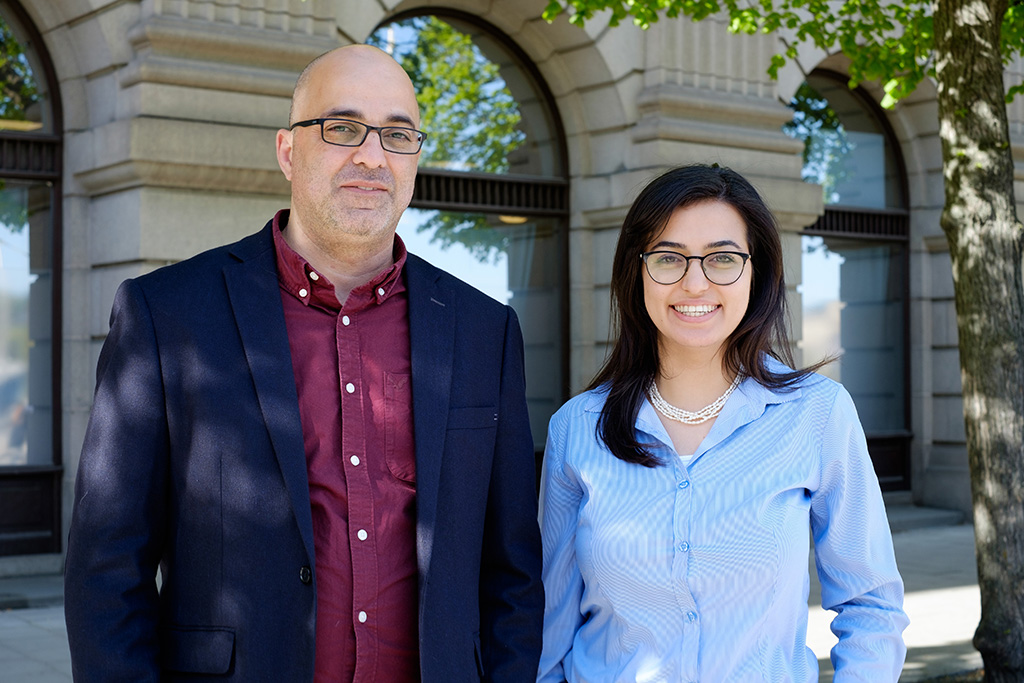They fight for women’s digital rights in Palestine
Social and political change has moved into our back pockets. Meet digital rights defenders Nadim Nashif and Mona Shtaya who work to ensure the right to privacy and freedom online.

Across the world, activists use social media to rally, organise and express their opinions. But the online space is not what it was ten years ago. Companies like Facebook and Google are now monitoring users’ every move and collecting an increasing amount of data on their behaviours.
“It’s a two-edged sword. On the one hand, social media provides the opportunity for mobilisation and access to information. On the other, it is used for surveillance that gives society even more control over individuals”, says Nadim Nashif.
Gender-based violence online
Nadim is the co-founder of 7amleh, The Arab Center for the Advancement of Social Media – an organization dedicated to digital rights and activism. Together with Mona Shtaya, he is visiting Stockholm to present new research on online violence against women in Palestine.
Social media can pose an especially hostile environment for women. The study A Violent Network, co-funded by The Kvinna till Kvinna Foundation, shows that one in three young women in Palestine have been subjected to violence online.
“It can be everything from nagging, by someone sending multiple friend requests or repetitive messages, to stalking and receiving nude photos. There are also cases where women have had their accounts hacked and intimate details are then used to extort them”, explains Nadim.
Mona says she was surprised by one of the outcomes of the research. “We know that the reason for these high figures is a patriarchal society. But some of the survey respondents suggested that more control and supervision by family members could be a solution.”
Already today, different kinds of spyware are used to monitor young women’s behaviour on their smartphones. Because of the nature of, for example, Facebook, a lot of interaction between friends is also wide open for everyone to see. The younger audience is therefore migrating to “dark social” – apps such as WhatsApp – to maintain their privacy, and there is a high demand among youths for digital security classes.
Defending digital rights
Mona explains digital rights as the extension of human rights, in online, virtual spaces. “It’s the right to privacy, freedom of expression, to organise and to access the internet.”
In today’s Palestine, these rights are suppressed through restrictive legislation. Social media companies can cooperate with authorities, who are allowed moderate content as well as hack users’ accounts, if it is a matter of national security. The definition of which is fuzzy.
“There will be no court order, and users are not given the right to appeal. It’s really dangerous for the digital rights’ movement”, says Mona.
For Nadim, Mona and their colleagues at 7amleh, the fight is far from over. But they work with something they love and are passionate about. “The best part is the success stories – when we achieve change together with other organisations. For example, last year we were able to improve the cyber-crime law”, says Mona, who wants to see a strengthened civil society in Palestine.